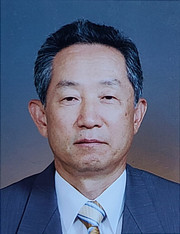By Vice Chairman Jang Chang-yong
The May issue of The Korea Post predicts that Korea's national fortunes are on the rise since the inauguration of President Yoon Suk-yeol. It cited the Korean people's high intelligence quotient, the miraculous economic growth that took the country from being one of the world's poorest nations to join the G-8, and the new international trade environment.
It's a plausible analysis.
Many economists and academics agree with this analysis.
However, there is an essential prerequisite for such a bright outlook.

Political stability. Without political stability, even a thriving economy can be sidetracked. This means that Korean politics is currently deviating from its normal course.
More than 30 years ago, Samsung Group Chairman Lee Kun-hee once criticized Korean politics as third-rate and politicians as fourth-rate.
These words have not shown any signs of improvement, and in some ways, they are getting worse.
There are two sides to every story in human society. There is always a shadow behind the bright side, and there is also despair behind the hope. If politics tackles the ankle instead of helping a thriving nation, it is as good as nonexistent.
Last year, the government's subsidies to the two major parties, the People Power Party and the Democratic Party, amounted to 60.2 billion won for the People Power Party and 68.4 billion won for the Democratic Party. The amount of money paid to the 300 lawmakers is also huge. The annual salary of each lawmaker is 150 million won (2022). It costs billions of won, including salary of nine aides and various privileges. All of which are taxpayer dollars. Nevertheless, their productivity is not high, although there is no accurate calculation. On the contrary, it is not uncommon for them to interfere with the welfare of the nation and the improvement of national competitiveness.
National Assembly, which is supposed to be sacred, is even said to be a gathering place for criminals.
If politics is not normalized, the country's fortunes will not flourish and it may fall out of the ranks of developed countries.
Some analysts have gone so far as to say that once the war in Ukraine is over, the next war will be in South Korea. If the current situation continues, there will be a silent war in South Korea -- an ideological war without guns -- and the winners will be the leftists, who will eventually communize and wipe South Korea off the face of the earth. It's a creepy story.
In an ideological war, the people don't matter, only the profit maximization of the clique exists.
Laws become ineffective, common sense fails, sophistry and falsehoods are produced, and only propaganda reigns.
The judgment of right and wrong is not made according to the law and common sense, but according to whether it is on our side or not.
If they are on our side, they are unconditionally right and innocent, and if they are on the other side, they are unconditionally evil.
There is no regard for the national interest or the happiness of the people.
The Democratic Party continues to support a person who is accused of a huge crime as its representative.
The People Power Party proposed to reduce the number of lawmakers by 30 in its administrative policy speech to the heads of the bargaining organization in the National Assembly.
For a ruling party, that's a lot of complacency. Doesn't the People Power Party realize that the number of lawmakers is not the only one who thinks that democracy will regress if the number of lawmakers is reduced to 100? When will the political scene in Korea be normalized?

